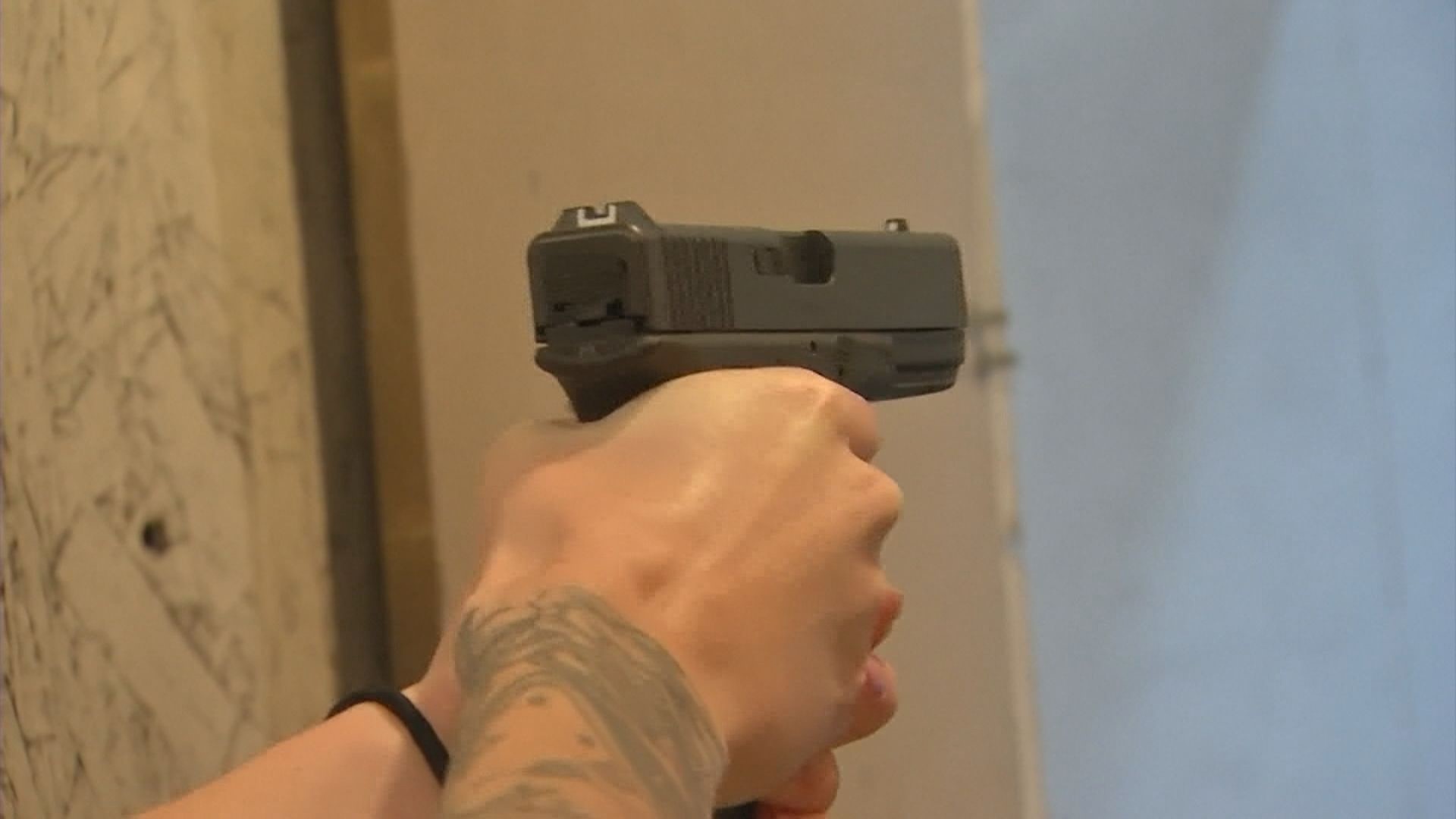INDIANAPOLIS — It's been more than one week since the mass shooting inside a Louisville bank that killed five, injuring others. Over the weekend, four people were killed and dozens of others were injured at a "Sweet 16" party in Alabama. Monday, a gun scare sent students home in a central Indiana school district.
The Gun Violence Archive reports there have been 165 mass shootings so far in 2023. The number of gun violence-related deaths for the year so far sits much higher at just over 12,500.
Experts say bringing those numbers down won't come from a simple fix.
Pierre Atlas, a senior lecturer at O'Neill School of Public and Environmental Affairs at IUPUI has spent years studying gun culture in America. With more guns than people in the United States, Atlas said curbing gun violence and deaths in this country will take time.
"Even if you were to stop the import, sale and manufacture of firearms starting tomorrow, there would still be more firearms than people," Atlas said.
In a nation where nearly one in five adults has had a family member killed by a gun, the high-rate of gun violence often clashes with our constitutional right to bear arms.
"Guns have been a part of American culture from colonial times and so, there have always been firearms," Atlas said. "A lot of scholars will point out, there's always been firearm regulations. So gun ownership and gun regulation has gone hand in hand from colonial time until today."
Atlas said many Americans view guns not just as a tool but as a symbol of freedom and liberty.
Over the centuries, that perception has shifted somewhat. Atlas said 50 years earlier, the U.S. saw a stark shift in its attitudes toward guns soon after the NRA began its push to expand gun rights – first with concealed carry laws and now, with permitless carry laws popping up. Indiana implemented its own permitless carry policy last summer.
Over the decades, Atlas said, the topic of guns became highly politicized, dividing the nation deeply often down party lines.
"Before Columbine in 1999, school shootings were very rare. After that, there's sort of a copycat type thing that's been going on," Atlas said. "And of course, every time there's a mass shooting, everybody takes their position. It's very predictable, whatever side you're on. It could be any mass shooting, it's going to be the same response from people on both sides of the issue rather than having a serious discussion on what can we do to reduce gun violence."
And gun violence is a problem in the United States.
In 2020, 45,000 people died from firearms. Those high numbers come not just from mass shootings but also domestic violence, homicide, suicide and accidental shootings.
Atlas, a gun-owner himself, said he believes those are numbers that can be reduced. But tough questions have to be asked, he said.
“What are the different types of gun violence we want to address? What can be done? Mental health issues are definitely there. But that’s not the only reason. When we see a lot of the gun deaths, it’s this nexus of mental health problems or mental health crisis and easy accessibility to firearms and that’s what puts America different from other countries,” Atlas said.
To cut down on those numbers, Atlas said he believes both sides need to come to the table.
"If gun-rights people say guns are not going away and for gun-reform people, guns are not going away," Atlas said. "What can we do to reduce gun violence? I think that's where we could have a serious conversation if you didn't have interest groups and politicians on both sides benefitting from not having a conversation."
Gun policies have always shifted with the culture in America, Atlas said. And he believes a culture shift coming from Gen Z may be what pushes our country to a change in gun policy in the decades to come.
"I think the new generation with their activism and the reality they've grown up with that older gunowners haven't grown up with, I think down the line will lead to some changes including electoral changes in terms of who gets elected to office," Atlas said.

